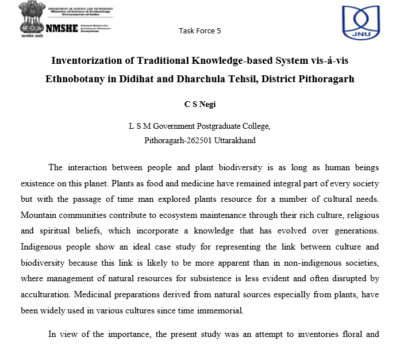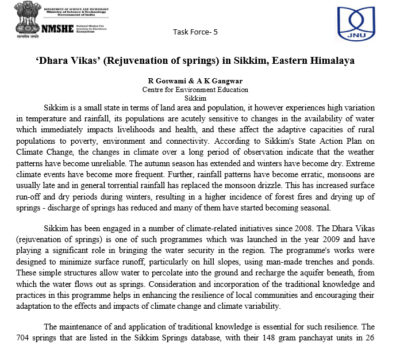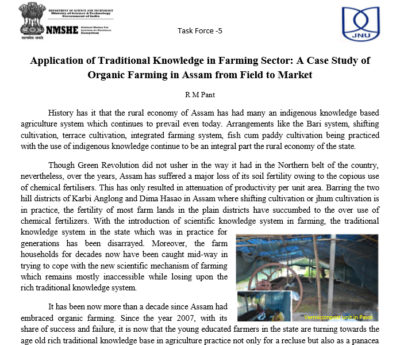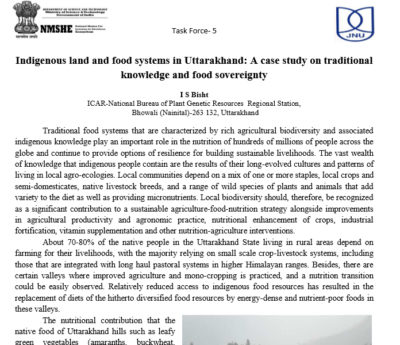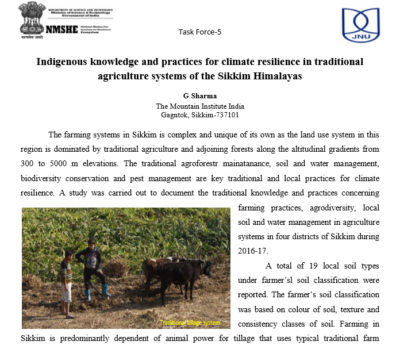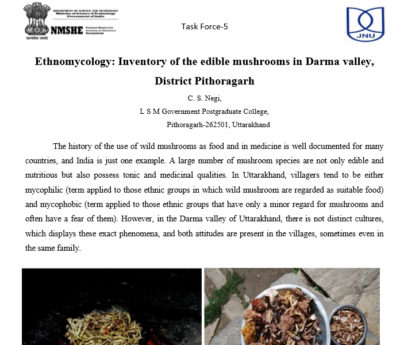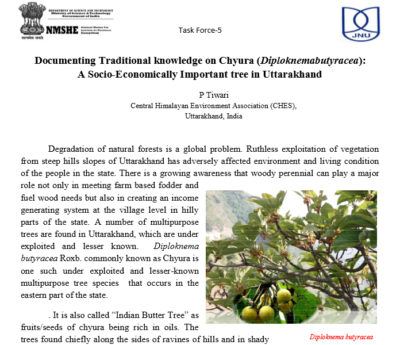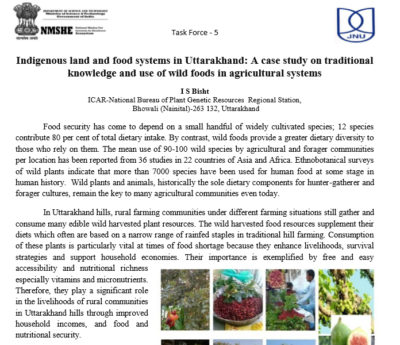Inventorization of Traditional Knowledge-based System vis-á-vis Ethnobotany in Didihat and Dharchula Tehsil, District Pithoragarh
The interaction between people and plant biodiversity is as long as human beings existence on this planet. Plants as food and medicine have remained integral part of every society but with the passage of time man explored plants resource for a number of cultural needs. Mountain communities contribute to ecosystem maintenance through their rich culture, religious and spiritual beliefs, which incorporate a knowledge that has evolved over generations.


